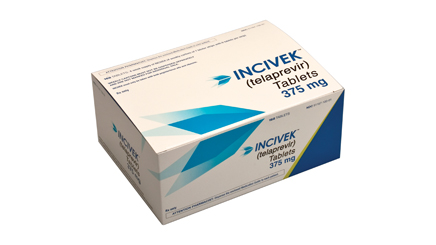infectiousdiseasesHepatitis C (HCV) has become one of the most prolific areas of drug development. What other category boasts two new drugs with a high likelihood of cure and shorter treatment in patients infected with a common and challenging illness, as in the recently approved Victrelis (Merck) and Incivek (Vertex)?
The two novel protease inhibitors, when given with peginterferon and ribavirin, offer “far better treatment outcomes, which will most likely result in greater numbers of patients receiving treatment,” predicts Derek Fetzer, director of global strategic analytics at Janssen Pharmaceutical Services. “However, aggressive screening is needed to substantially reduce the [HCV] epidemic.”
Indeed, Wolters Kluwer inThought says its 2015 worldwide sales estimates of $2.7 billion for Incivek and $2.0 billion for Victrelis could go higher, if HCV screening becomes routine.
How to accomplish this? Considering ID specialists are among the heaviest users of the web during patient consults, digital channels are one way, says Margaret Crowley, senior director of marketing, Optimer Pharmaceuticals, which recently received FDA approval for antibiotic Dificid, for treating Clostridium difficile–associated diarrhea (CDAD).
“There’s very low awareness of the increasing incidence and severity of CDAD, and there is a problem with its recurrence, so we’re focusing on disease awareness,” says Crowley.
Ditto for Hepatitis B virus (HBV). While PCPs and gastroenterologists like prescribing the two guideline-recommended orals—Gilead’s Viread and Bristol-Myers Squibb’s Baraclude—only about 5% of the 1.4-2.0 million people chronically infected are being treated, a recent study showed.
Faced with an awareness challenge in the HCV space, Merck and Vertex are doing a fair bit of disease education. A Leerink Swann survey of US hepatologists and gastroenterologists found that 39% and 45% of respondents had already prescribed Victrelis and Incivek, respectively. The brands could pave the way for newcomers. The HCV pipeline includes agents from Human Genome Sciences, Novartis, Boehringer Ingelheim and J&J.
Companies in the HIV space aren’t standing still, either. Some 32 antiretroviral drugs are on the market, including several well-tolerated co-formulations. In phase III is a one-pill, once-daily combination of Gilead’s Truvada and Johnson & Johnson’s just-approved Edurant. Analysts anticipate it may achieve broad first-line use, despite having lower efficacy among sicker patients than the market leader, Gilead’s Atripla.
Gilead’s “quad pill” is also in late-stage testing, raising the possibility that the firm could face the enviable challenge of marketing three once-a-day combo pills. ViiV Healthcare is developing yet another co-formulation combining dolutegravir with Epzicom. n
The next installment of MM&M’s Therapeutic Focus will be October’s look at oncology products
From the August 01, 2011 Issue of MM+M - Medical Marketing and Media








